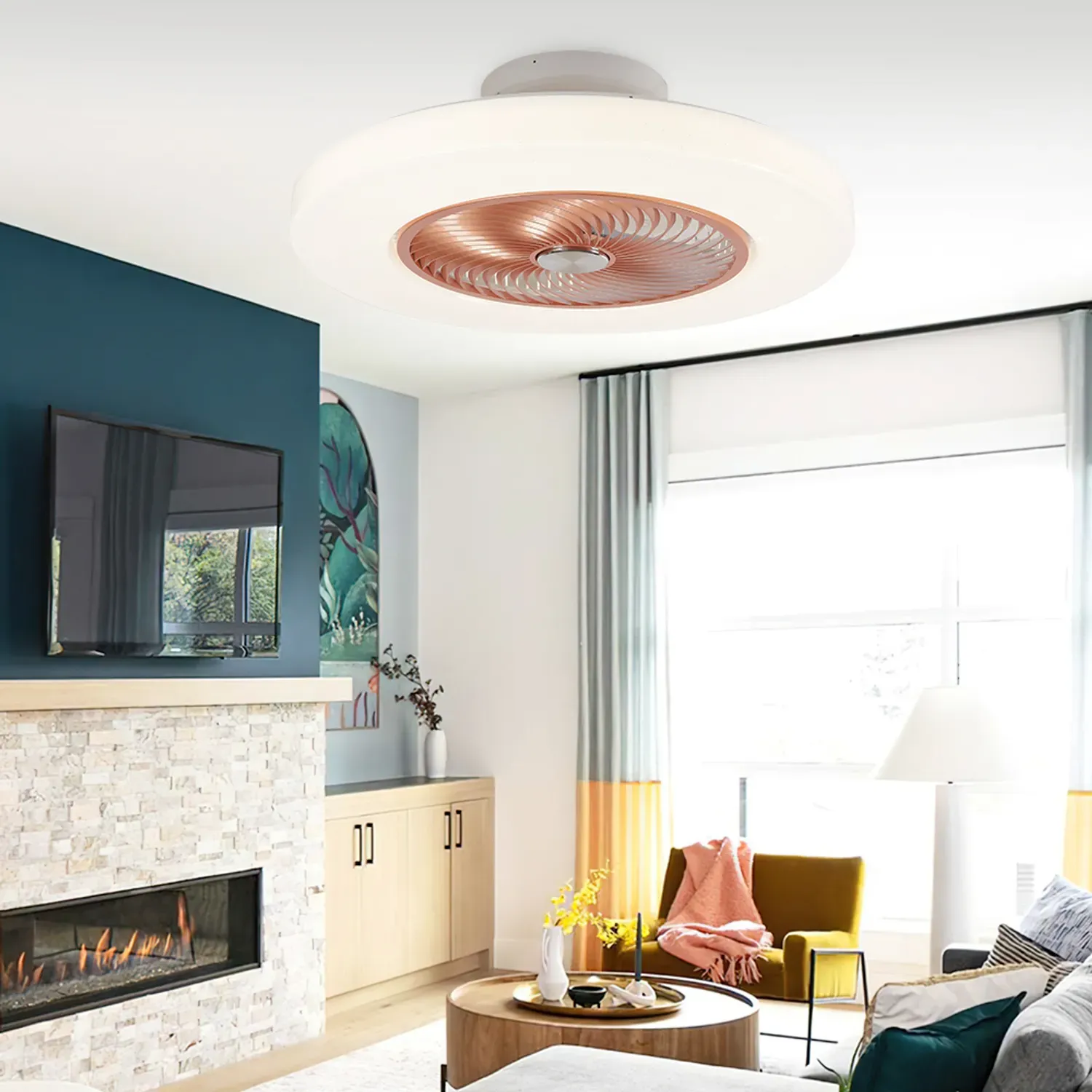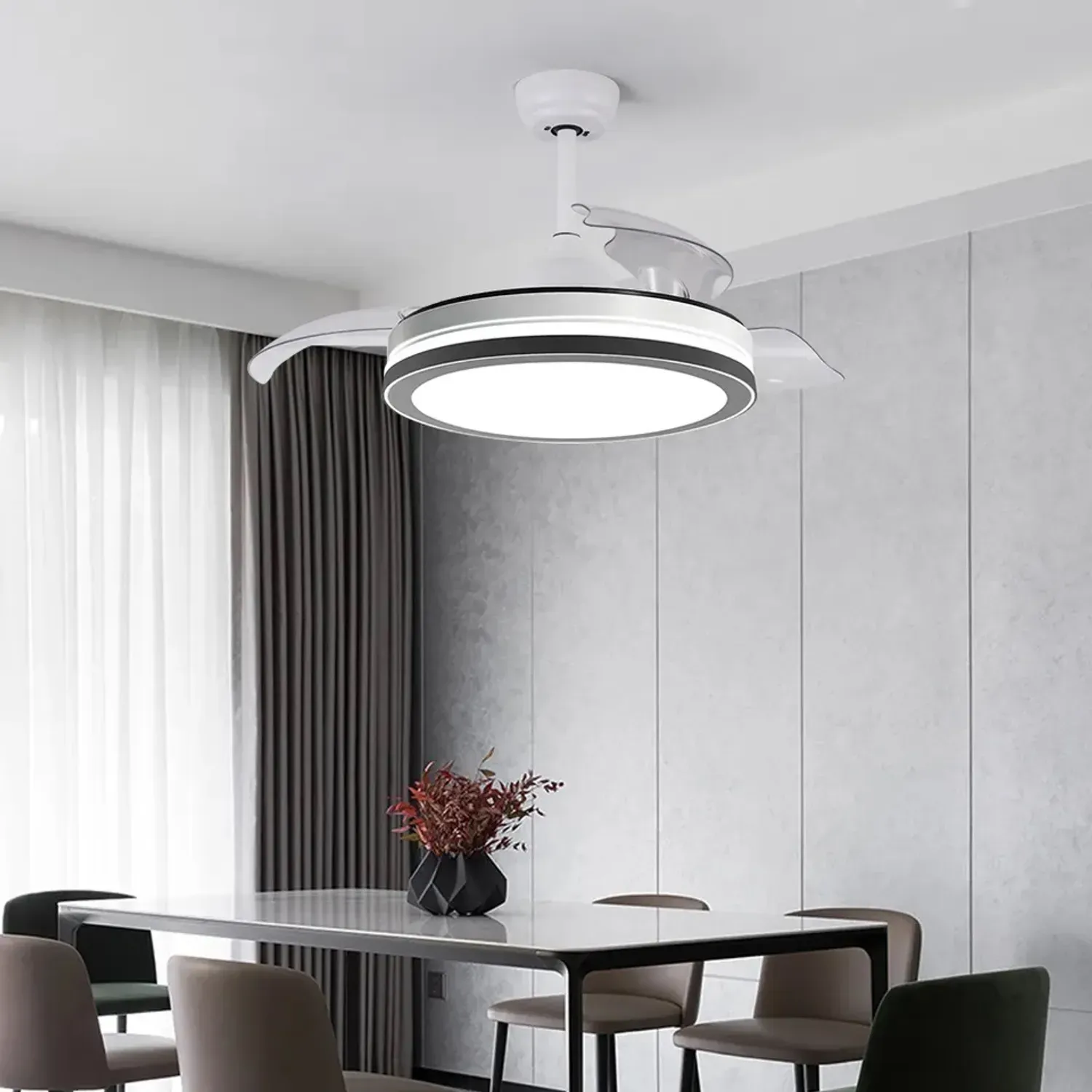
Get A Quote
Optimal Strategies for Selecting a Whisper-Quiet Ceiling Fan
Crafting a serene and peaceful environment within your home greatly depends on the presence of a silent and efficient ceiling fan. Here at KBS, we are dedicated to providing ceiling fans that seamlessly blend style and functionality, guaranteeing whisper-quiet performance. Let us assist you in choosing the perfect whisper-quiet ceiling fan to transform your bedroom into a sanctuary, your home office into a focused haven, or your living area into a peaceful retreat.
Importance of a Quiet Ceiling Fan
The significance of a quiet ceiling fan transcends mere comfort, playing a pivotal role in shaping the overall ambiance and functionality of any space. Here's why prioritizing a quiet ceiling fan is essential:
1. Elevated Comfort: A quiet ceiling fan offers gentle airflow without the distraction of excessive noise, fostering a serene environment perfect for relaxation, work, or sleep.
2. Enhanced Sleep Quality: Excessive fan noise can disrupt sleep patterns, but a quiet fan creates a soothing atmosphere in the bedroom, promoting better sleep quality and overall well-being.
3. Improved Ambiance: In shared living spaces like living rooms or home offices, a quiet ceiling fan contributes to a more pleasant ambiance, allowing for uninterrupted conversations, entertainment, or focused work.
4. Reduced Disturbance: Quieter operation minimizes disturbance to others in shared living environments, ensuring everyone can relax or engage in activities without being interrupted by fan noise.
5. Enhanced Energy Efficiency: Quiet ceiling fans often incorporate advanced motor technology, reducing noise while improving energy efficiency. Opting for an energy-efficient fan helps lower utility bills while maintaining comfort.
6. Extended Lifespan: Quality ceiling fans with quiet operation are typically built to higher standards, resulting in increased durability and longevity. A quieter fan is often indicative of superior construction and components, leading to fewer maintenance issues and a longer lifespan.
Deciphering Ceiling Fan Sound
Ceiling fans can produce a range of sounds, from subtle hums to bothersome buzzes, influenced by factors such as motor quality, blade design, and installation. When seeking a quiet ceiling fan, it's essential to consider more than just its appearance. Here are the critical factors to keep in mind when selecting a quiet ceiling fan:
Motor Quality and Performance
The quality of the motor significantly impacts a ceiling fan's performance, especially concerning noise levels. At KBS, we excel in motor engineering, utilizing top-tier motors engineered for quiet operation without compromising power. Our meticulously crafted motors ensure whisper-quiet functionality at all speeds, fostering a serene atmosphere in your home. Additionally, our energy-efficient motors align with our dedication to sustainability, making them a smart choice for eco-conscious consumers.
Blade Configuration
Blade design plays a critical role in noise reduction. Factors such as the number of blades, material, and shape influence airflow and noise emission. At KBS, our blade designs undergo meticulous crafting to optimize air movement while minimizing noise output. Each design undergoes rigorous testing to meet our strict criteria for silence and quality, ensuring efficient performance and tranquility in your home.
Essential Features to Consider
Selecting a quiet ceiling fan involves more than just looking at superficial features like the number of blades or the type of motor. It's about understanding how each component contributes to the fan's overall performance and noise level. In this section, we'll delve into the essential features to consider when choosing a quiet ceiling fan. Armed with this knowledge, you'll be empowered to make a wise decision for your home, creating an environment of tranquility and serenity.
Type of Motor
Ceiling fans equipped with DC motors are highly regarded for their near-silent operation and exceptional energy efficiency, outperforming their traditional AC motor counterparts. With advanced DC motors, users can enjoy precise speed control, tailoring their airflow experience to their exact preferences.
Number of Blades and Design
In the realm of blade fan discourse, aesthetics often take precedence. However, it's imperative to acknowledge the significant influence that blade count can have on noise levels. With meticulous design and equilibrium, any blade setup can attain silent operation. Feel empowered to select based on your unique style inclinations, assured that each choice will bestow both tranquility and sophistication upon your environment.
Material Quality
The choice of materials for constructing the fan blades and housing significantly impacts noise levels. Opting for high-quality, sturdy materials enhances the fan's ability to dampen vibrations and reduce noise transmission. It's advisable to seek fans crafted from robust materials like metal or high-grade ABS plastic to ensure optimal quietness and durability.
Balance and Installation
Achieving proper installation and balance is crucial for minimizing noise with a ceiling fan. Improperly installed or unbalanced fans can generate annoying rattling or humming noises. To mitigate this, it's essential to ensure the fan is securely mounted, and all components are aligned correctly to prevent unnecessary vibrations. This attention to detail during installation can significantly contribute to a quieter and more enjoyable fan experience.
Room Size and Height
The size of the room and the height of the ceiling play crucial roles in determining the quietness of a ceiling fan. Selecting the appropriate fan size for the room ensures optimal airflow without the necessity of running the fan at high speeds, which can lead to increased noise. Moreover, fans installed in rooms with higher ceilings may produce less noticeable noise due to the increased distance from occupants.
FAQs:
Do Ceiling Fans with More Blades Operate Quieter?
The assumption that increasing the number of blades on a ceiling fan inherently results in quieter operation is not entirely accurate. While blade count can influence airflow and performance, it's important to note that noise level is determined by multiple factors. Factors such as the quality of the motor, blade design, and overall construction of the fan also significantly contribute to how quietly it operates. Therefore, while the number of blades can impact certain aspects, it does not guarantee a quieter fan on its own.
Can remote controls or smart capabilities influence the noise level of a ceiling fan?
Remote controls or smart capabilities themselves do not directly influence the noise level of a ceiling fan. However, they can indirectly affect noise levels based on how they control the fan's speed and operation. For example, if a remote control allows for precise speed adjustments, users can potentially find an optimal setting that minimizes noise while still providing sufficient airflow. Similarly, smart capabilities that enable scheduling or automation features can ensure that the fan operates at quieter levels when needed, contributing to a quieter overall environment. Therefore, while remote controls and smart capabilities may not directly impact noise levels, they can offer control options that help users manage noise more effectively.
Three Blades or Four Blades?
When considering the noise level of a ceiling fan, it's crucial to look beyond the number of blades. Blade design, motor quality, and overall construction are key factors influencing noise levels. While three-blade fans are typically associated with modern aesthetics and may offer quieter operation due to reduced drag, well-designed four-blade fans can also operate quietly. Ultimately, the quietness of a ceiling fan is determined by a combination of factors, making it essential to consider multiple aspects when making your selection.
Choosing the Most Silent Ceiling Fan for Your Requirements
Selecting the quietest ceiling fan for your space involves more than just selecting a stylish design. Factors such as the room's size and ceiling height play a crucial role in determining the fan's performance and noise level. Opting for a fan that is appropriately sized for the room ensures efficient operation and reduces the risk of excessive noise. Additionally, the blade pitch is an important consideration as it affects the amount of air circulated by the fan.
Modern features like remote controls or smart capabilities can enhance convenience without compromising the fan's quiet operation. By carefully considering these factors, you can choose a ceiling fan that not only complements your home's decor but also provides a peaceful environment for relaxation and comfort.
KBS Ceiling Fans
If you have any other questions about ceiling fans, please contact us as soon as possible, and we will be happy to assist you. KBS has extensive professional knowledge in the fan industry and is a reliable ceiling fan factory and supplier. Our range of products includes various options such as ceiling fans with or without lights, wooden ceiling fans, solid wood ceiling fans, ABS ceiling fans, metal ceiling fans, chandelier ceiling fans, and more. We aim to bring you a brand new experience.

